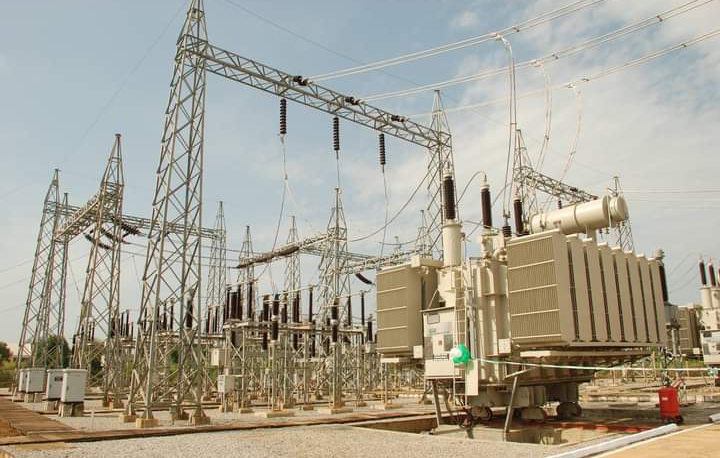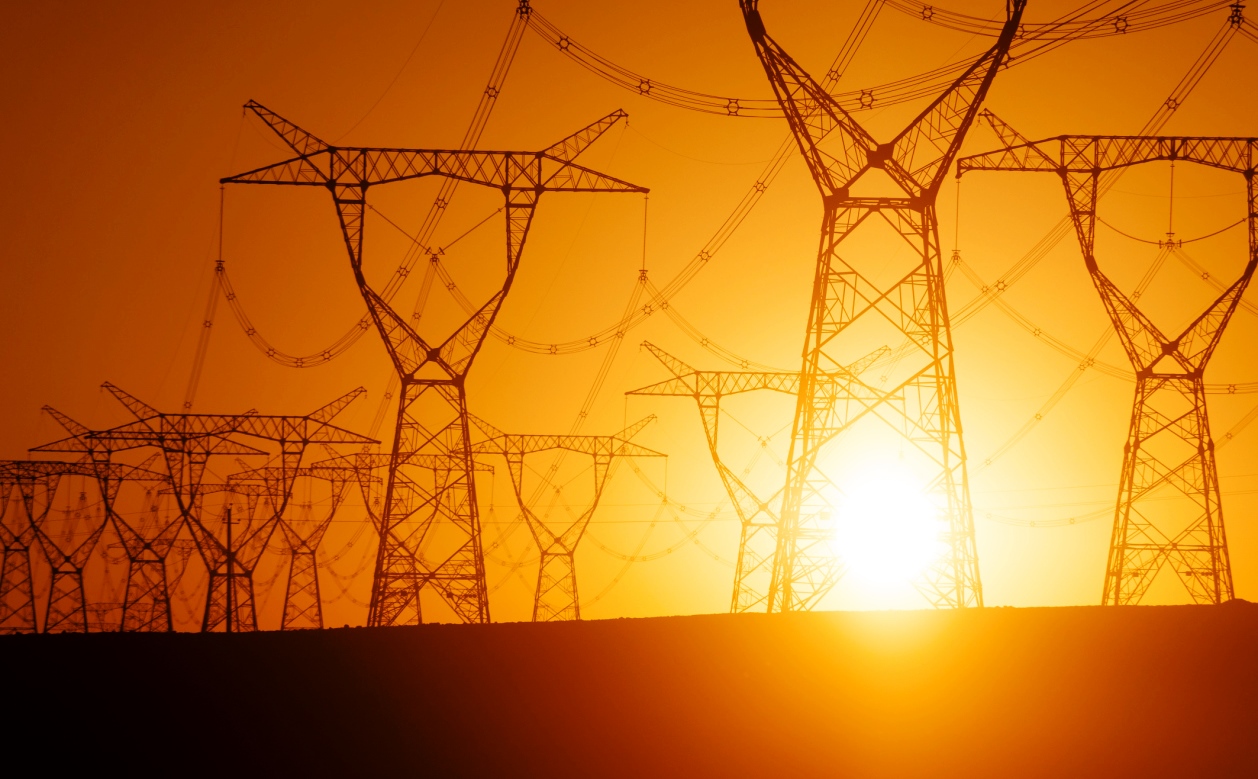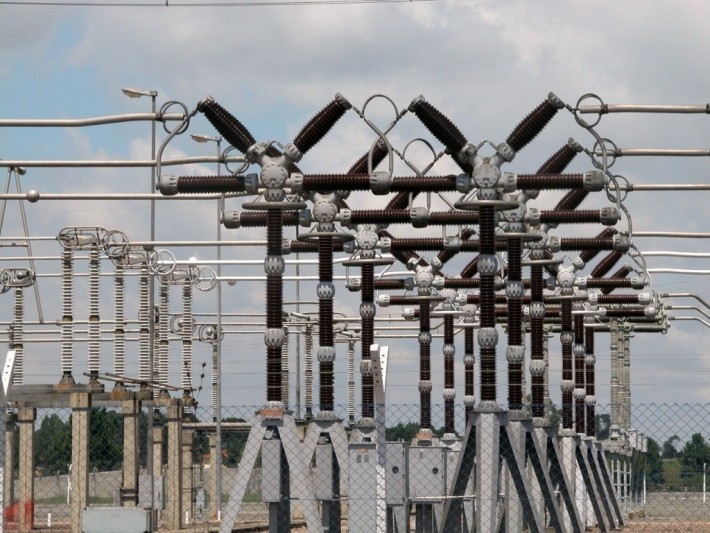The Transmission Company of Nigeria (TCN) has raised an alarm of plots by some elements to attack electricity facilities in the country.
TheNewsGuru.com (TNG) reports TCN particularly made reference to electricity facilities in the Zuba area of Abuja, the federal capital territory (FCT).
The Company has, as a result, called on citizens living close to TCN towers nationwide to join in safeguarding power transmission towers and cables.
TCN especially called for heightened vigilance in the Zuba area, and implored residents to report any suspicious activities in order to safeguard the integrity of the facilities and ensure uninterrupted power supply.
Recall that the National Grid, managed by the TCN, collapsed on March 28, 2024, throwing parts of the country into total darkness.
Noting that vandalism is a persistent challenge in the power sector, TCN highlighted the critical need for increased community support and vigilance in protecting transmission infrastructure.
In a statement on Sunday, TCN’s GM, Public Affairs, Ndidi Mbah disclosed that aside vandalism, low power generation substantially increases grid fragility.
Mbah in the statement also noted that efforts were being made to stabilise gas supply to sustain optimal power generation and facilitate easier grid management, reducing system disturbances.
The statement reads: “Transmission Company of Nigeria (TCN) notes that it remains committed to managing the grid and ensuring grid stability amidst ongoing challenges such as the persistent low gas supply affecting power generation into the nation’s grid.
“Our diligent grid controllers work tirelessly day and night to balance the grid and prevent any kind of disturbance amidst challenges.
“The recent grid disturbance on March 28, 2024, was promptly managed by our skilled operators, with power restoration achieved in some areas within 21 minutes of the disturbance.
“We acknowledge the collaborative efforts of the Federal Government, particularly the Minister of Power, who has been working hard to address the root causes of low gas supply.
*The Minister has held meetings with Generating Companies (GenCos) and Gas Companies (GasCos) to secure a higher volume of gas supply and consistency for enhanced power generation.
“As efforts to stabilize gas supply progress, TCN emphasizes the importance of consistent gas availability to sustain optimal power generation and facilitate easier grid management, reducing system disturbances.
“It is a fact that low power generation substantially increases grid fragility.
“In addition to gas supply challenges, TCN faces various sector-specific hurdles, some impact other players in the value chain, but invariably affect grid stability.
“Vandalism is a persistent challenge, as clearly seen in the first quarter of 2024 alone, in which five significant vandalism incidents disrupted transmission operations, necessitating emergency repairs and, in some cases, complete tower reconstruction and/or transmission line replacement due to acts of vandalism.
“These highlight the critical need for increased community support and vigilance in protecting transmission infrastructure.
“TCN urges heightened vigilance, for now, particularly in the Zuba area, following alerts of a planned attack on TCN facilities in Zuba.
“We implore residents to remain vigilant and report any suspicious activities around power facilities in the area to safeguard the integrity of our infrastructure and ensure uninterrupted power supply to all.
“Again, we urge everyone, especially those living close to TCN towers nationwide, to please join hands with TCN in safeguarding power transmission towers and cables”.
Experts task FG on investment in morden power infrastructure
Meanwhile, some experts in the power industry have called the Federal Government to prioritise investment in modern power infrastructure to mitigate frequent system collapses.
The experts made the call in seperate interviews on Sunday in Lagos State on the heels of the March 28 collapse of the national grid that plunged millions of homes and businesses into darkness.
The March 28 collapse of the national grid marks the fourth collapse of the grid in the first three months of the year.
Commenting on the development, Mr Chinedu Bosah, National Coordinator, Coalition for Affordable and Regular Electricity (CARE), said system collapse could be stopped by reversing the power privatisation and invest more in modern power infrastructure.
Bosah said that such investment must be carried out transparently, and under the democratic control of workers and consumers.
This, he said, would forestall the usual corruption and inefficiency linked to public investment.
He said that if transmission infrastructure had to be upgraded, and it requires massive investment, but had to be pursued to achieve public interest.
“If the ruling elite continues to see investment from the point of personal enrichment, very little will be achieved.
“Hence, all subsequent investments must not be determined and handled by the corrupt bureaucracy.
According to him, it has to be people-oriented, transparent and managed by workers and consumers if it had to achieve its set goals.
The expert said: “System collapses have come to stay, it is now part of the electricity value chain and it is multifaceted.
“It is also system collapse when the distribution companies reject load electricity and plunge communities into darkness or distribute electricity through poor facilities and infrastructure.
“It is system collapse when the GenCos fail to generate more electricity for Nigerians.”
Bosah said that apart from the plan to increase power generation from 3,500 MW to 6,500 MW, the minister of power should also have told Nigerians how to achieve it.
“We expect the generation companies to make such a promise and show the plan to achieve this, not the minister.
“In other words, 6,500 MW for a population of over 200 million people can not be celebrated. It is a feat that endorses our backwardness and underdevelopment.
“The generation of 6,500 MW will still leave many Nigerians in darkness,” he said.
Bosah condemned the clamour for the privatisation of the Transmission Company of Nigeria (TCN), saying, ” they have not learnt anything from the failure of the privatisation of the generation and distribution aspect of the power sector”.
“It would have made sense if the GenCos and DisCos are doing very well,m. But in fact, the GenCos have not added 1 MW since privatisation while the DisCos are distributing darkness in most cases,” he added.
He said that the problem with GenCos, DisCos, and TCN were major companies, put together, to actualise profits for the owners and the managers.
Also, Mr Akinrolabu Olukayode, the Chairman of the Customer Consultative Forum of Festac/Satellite Town, called for a thorough audit of past investments.
He alleged that there had been diversion of funds into private pockets and therefore advocated for a change in management.
He suggested an injection of fresh talent to combat corruption and inefficiency.
“There is no way that you will obtain a different result when you keep adopting the same approach.
“It is when you change the approach that you can visibly obtain a different result.
“It is crystal clear that the huge investment in the energy sector is diverted into a private purse for personal gains,” he added.
He said that the accumulated effects of consistent failure to utilise budgeted funds for the maintenance of the national grid were responsible for the collapses.
“The projected increase from 3,500MW to 6,500MW in the next six months is doable and feasible.
“The power generating plants in Nigeria have 11,165MW capacity.
“There are 23-26 power generating plants, out of which Jebba and Shiroro are hydro plants, suffering water management presently.
“The largest power plant (Egbin) is having a shortfall of 514MW and Geregu, 230MW, and many others.
“If the management of gas and water supply is adequately tracked and maintained with 11,165MW capacity, the realisation of 6,500MW will be a walkover for the minister without any further ado, ” Olukayode noted.
He said that the privatisation of TCN might be an option but not necessarily the most appropriate panacea to the lingering power shortage.




